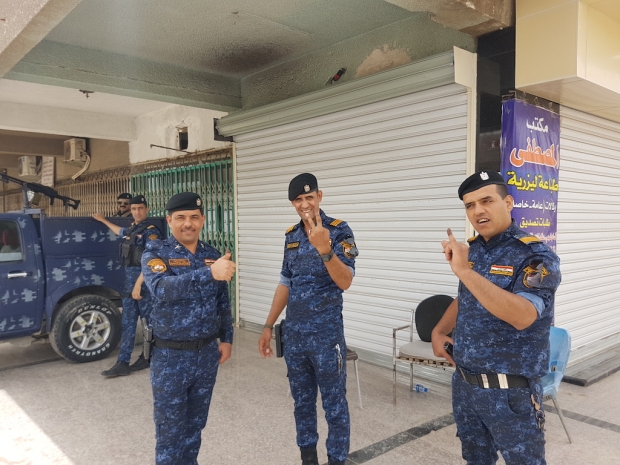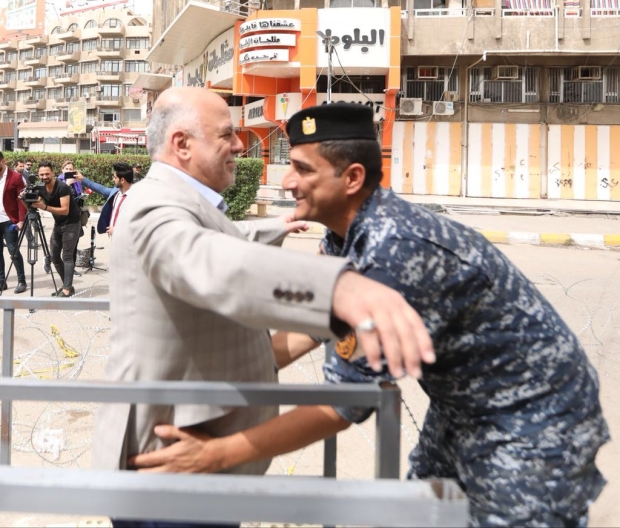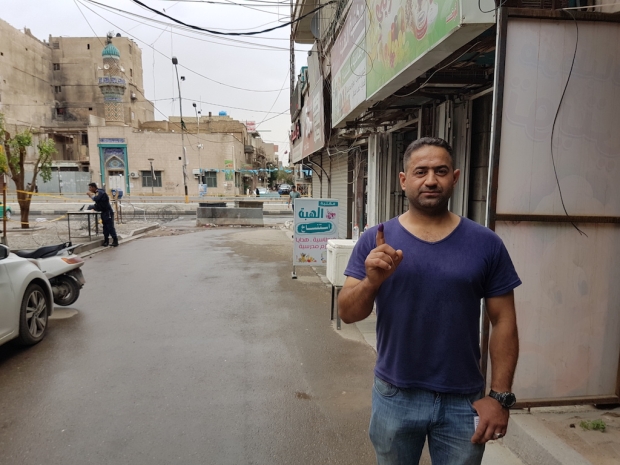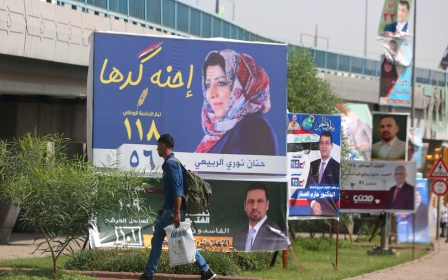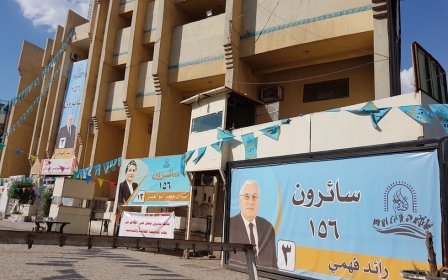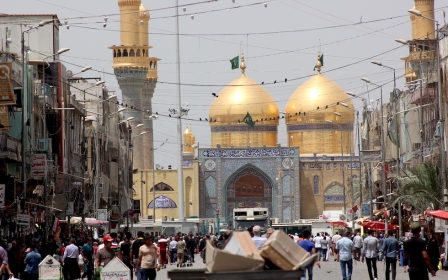Iraqis stay at home as officials report low turnout for election
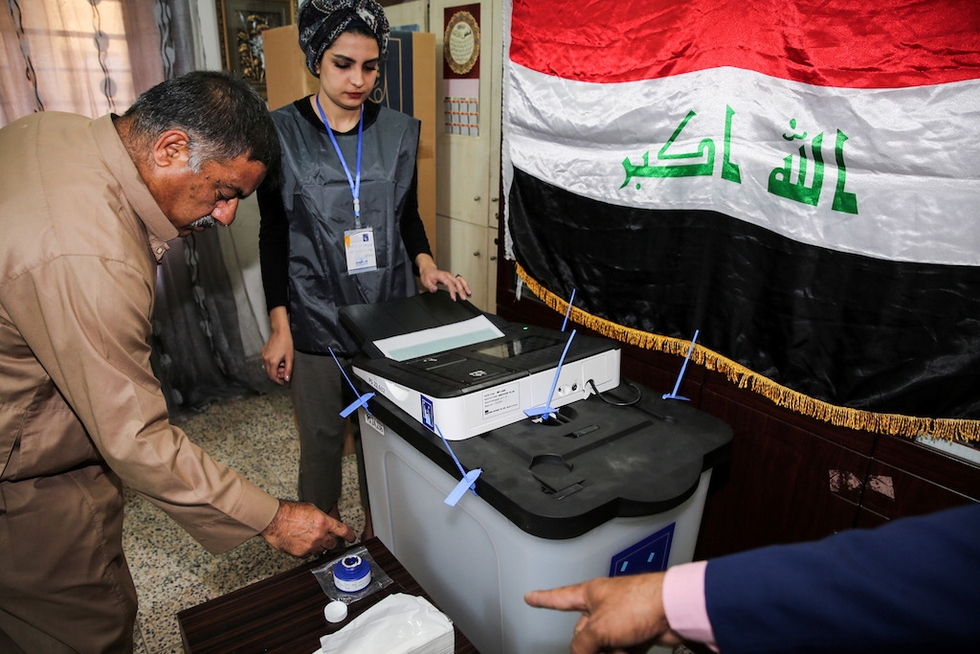
BAGHDAD - Iraq's electoral commission said less than a fifth of Baghad residents had turned out to vote by Saturday afternoon as polls closed in the first elections in Iraq since the official defeat of Islamic State militants.
Some Baghdad residents braved unseasonal May rain and thunder, and threats by IS against voters in the elections.
With the exception of people who had an exemption from the Iraq High Elections Commission (IHEC), the usually busy streets were deserted for much of the day due to a traffice curfew, although by the afternoon the restrictions had been eased.
More than 24 million Iraqis are registered to vote for more than 7,000 candidates in 18 provinces.
Despite this, reports indicated a low turnout across the country. Initial reports from IHEC said overall turnout had been 32 percent, compared to the 80 percent turnout for the 2005 elections. The midday turnout dipped to just 12 percent in Baghdad, although by 4pm it had reportedly risen to 35 percent.
Voters, including the elderly, had to walk sometimes long distances to reach their nearest polling station. But anger over rampant corruption and unemployment meant that many were undeterred.
"We need to change the old faces," said Riad, 62, speaking to Middle East Eye.
"Over 14 years we didn't get any advantage from them, they just sabotaged Iraq, destroyed everything, so we need to changes these faces."
Riad, along with his wife and son, was en route to vote in al-Furat intermediary boys school in Karrada, one of many polling stations in the city.
The voting, which took place using a new electronic system, was plagued by delays and malfunctions. Problems were reported across Baghdad as well as in Ninevah province, Kerbala and the Kurdistan region.
We are all going to die eventually, so why be afraid? This is our country, so why be afraid?
- Jolia, 50, voter
Polls opened at 7am and closed "automatically" at 6pm, according to IHEC. Ali Qader, the head of IHEC in the Kurdish semi-autonomous region, told the news agency Rudaw that there could be no extension of the voting, despite the problems.
Ali, head of al-Furat school polling station, said that by midday about 150 voters had cast their vote.
He said there had been no "big problems" but there had been technical difficulties.
"There was a delay in the polling device, so we had to reset it," he told MEE.
Despite the issues, he said the new method was "more efficient" than the paper ballots used in the previous elections in 2014.
Prime Minister Haider al-Abadi was pictured voting in his home district of Karrada. While other Iraqi leaders voted in the high security Green Zone, Abadi was shown being patted down by security guards along with other voters:
Hadi al-Ameri, the head of the Hashd al-Shaabi (Popular Mobilization Units, or PMU) and a potential prime minister if the Fatah Coalition does well at the polls, encouraged voters not to be deterred.
"There have been some technical problems with new electoral devices, but this should not discourage people to participate in the election," he said in a press statement.
Change, change, change
Despite Iraq's reputation for sectarian voting patterns, this election has been heavily focused on social issues around unemployment, security and seething anger at a corrupt political class.
"We need to get rid of corruption and the corrupted politicians," said Ubert, outside another polling station near Aljumhirya bridge, also in central Baghdad.
"We need to improve the infrastructure, get more job opportunities and improve the general situation."
The need for "change" was echoed by every Iraqi who spoke to MEE.
"We want to change," said Jolia, voting at the same polling station. "We are tired of the old government. We have to make some change. This is a responsibility for the citizens of Iraq."
She said that as a Christian she had given her vote to the Babylon List, which is linked to a Christan PMU group.
Persistent anger over the parliamentary system in Iraq, installed following the 2003 invasion that overthrew long-time ruler Saddam Hussein, led to calls in some quarters for a boycott.
In particular, young activists have launched social media campaigns under the hashtags #stayhome and #boycottelections.
Mohammed, 21, is one of three million Iraqis who can vote for the first time, despite a general disillusion with Iraq's political class.
"All the politicians, even the Islamic ones, are corrupted, and we didn't get anything from them and there is no advantage from their existence, so we need to change them," he said.
He told MEE that he had voted for the Sairoun Alliance, a coalition backed by influential Shia cleric Muqtada al-Sadr and including the Iraqi Communist Party, which is running on an anti-corruption, anti-sectarian platform. With a few exceptions, the list is fielding largely new faces, untainted by corruption allegations.
"They have a different way of handling people, especially right now, when they keep away the extremists from their coalition and bring in open-minded people, Communist people, educated people," he said.
Although enthusiasm for the elections seems to have been lukewarm, there has been little indication that people stayed away due to threats by IS.
Jolia, when asked about whether she was disuaded by the IS threats to attack polling stations, was dismissive.
"We are all going to die eventually, so why be afraid? This is our country, so why be afraid?" she said.
New MEE newsletter: Jerusalem Dispatch
Sign up to get the latest insights and analysis on Israel-Palestine, alongside Turkey Unpacked and other MEE newsletters
Middle East Eye delivers independent and unrivalled coverage and analysis of the Middle East, North Africa and beyond. To learn more about republishing this content and the associated fees, please fill out this form. More about MEE can be found here.


